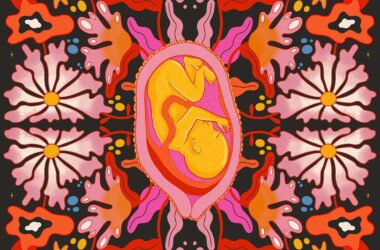Shut up shot of feminine walkers laughing within the countryside.
SOLSTOCK LTD./Getty Photos
AROUND the age of fifty, girls cease releasing eggs and may now not have youngsters. We contemplate this menopause a pure a part of life, however in a single respect, it’s actually fairly uncommon – there are hardly another species by which females expertise reproductive shutdown once they usually nonetheless have a long time of wholesome life forward.
So what’s the level of menopause? The newest findings help the concept that it’s to do with our uniquely demanding offspring and the necessity to preserve relations who may look after them wholesome and mentally sharp for so long as potential.
Traditional evolutionary principle predicts that organisms ought to solely reside so long as they will go on their genes. This largely holds true throughout the animal kingdom: apart from people, solely feminine orcas, short-finned pilot whales, belugas and narwhals are likely to survive nicely past their fertile years.
Does menopause serve a goal?
The rationale we have now menopause might merely be as a result of there are organic constraints on how lengthy it’s potential to keep up high-quality eggs, says Michael Gurven on the College of California, Santa Barbara. The typical age of the onset of menopause in people has barely budged whilst life expectancy has soared, he says. “We positively appear to be hitting a wall.”
Males might not expertise the identical clear-cut finish to their fertility as a result of they will preserve creating new sperm as they age, albeit with declining amount and high quality, whereas…












